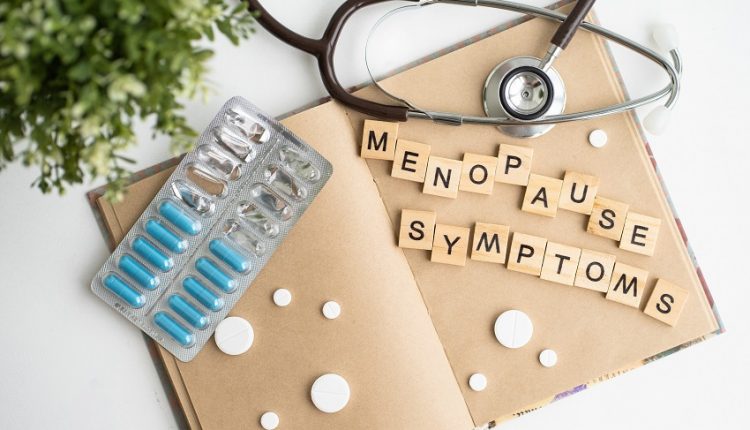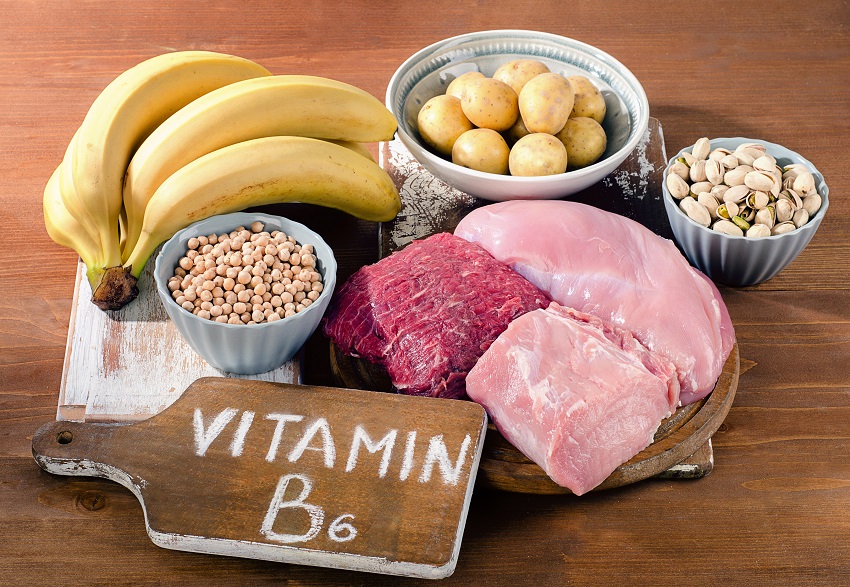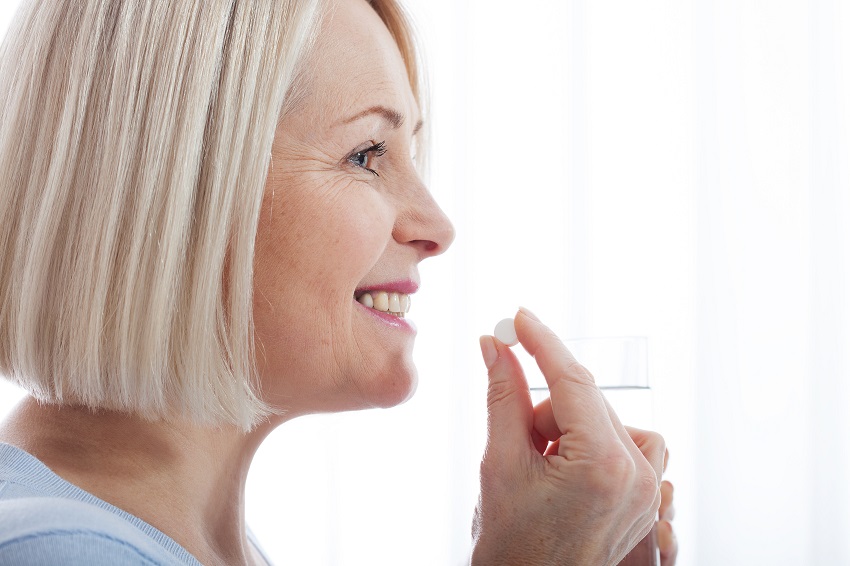
Nutrition to Reduce Menopause Symptoms
The symptoms of menopause might differ between women, and various methods have been proposed to reduce this period’s symptoms. Nutrition during menopause is a way to reduce the symptoms of menopause, including hot flashes, night sweats, mood swings, and changes in sexual desire. Hence, in today’s article of Living Maples Mag, we will talk about the best foods and supplements to reduce menopause symptoms in women.
What Is Menopause?
Menopause is one of the natural cycles of a woman’s sexual life after the menstrual cycle. Before menopause begins, a woman’s body produces less estrogen, known as the premenopausal period. Women may also experience the following symptoms between pre-menopause and menopause:
- Hair loss
- Hot flashes
- Insomnia
- Night sweats
- Weight Gain
- Skin dryness
- Mood changes
- Change in sexual desire
- Genital tract infections
These symptoms are mild in some women and severe in others. Decreased levels of estrogen in the body also increase the risk of certain diseases, including:
- Heart disease
- Osteoporosis
- Urinary incontinence
You may be surprised to hear this, but some multivitamins may reduce the symptoms of menopause and help maintain overall health. Furthermore, changes in daily diet will significantly alleviate menopausal problems.
Read More: A Guide to Exercise During Menopause
Vitamins for Reducing Menopausal Symptoms
Vitamin A
Vitamin A is the name of a group of compounds called retinoids. This vitamin is also called retinol, accumulates in the liver, and large amounts may be toxic. You can get the vitamin A you need from animal sources, beta-carotene-rich fruits and vegetables, processed foods or supplements.

Vitamin A also helps with bone health, but its use during menopause is debatable, and a high intake of vitamin A may cause bone fractures. If vitamin A is derived from beta-carotene, it does not appear to be associated with bone fractures. Hence, you can use beta-carotene-containing fruits such as oranges or yellow fruits and vegetables to reduce your menopausal symptoms.
Note: If you are taking a vitamin A supplement, be careful that your daily vitamin A level does not exceed 5,000 IU and that 20% of the vitamin in the supplement is from beta-carotene.
Vitamin B12
Vitamin B12 is a water-soluble vitamin found in most foods and is essential for:
- Nervous function
- Bone health
- DNA formation
- Red blood cell formation
As we grow older, our body loses some of its ability to absorb vitamin B12; hence, we may become deficient in B12. This condition is intensified during menopause. Symptoms of B12 deficiency generally include:
- Weakness
- Constipation
- Fatigue
- Depression
- Dementia
- Decreased appetite
- Balance problems
- Numbness
Vitamin B12 deficiency can also cause anemia in severe cases. The recommended daily amount of vitamin B12 for women is 2.4 mg, which you can get through supplements or processed food during menopause. Some food sources of vitamin B12 include:
- Meat
- Fish
- Milk
- Cheese
- Eggs
- Fortified breakfast cereals
Vitamin B6 & Menopause
Vitamin B6 (pyridoxine) helps produce serotonin. Serotonin is also one of the chemicals responsible for transmitting nerve messages. As women get older, their levels of serotonin decrease. Furthermore, fluctuations in serotonin levels may play a role in mood swings and depression, common in menopause.

The required daily amount of vitamin B6 for women is 100 mg. Hence, you can take vitamin B6 supplements during or after menopause to prevent symptoms of low serotonin levels such as decreased energy and depression.
Vitamin D
Estrogen increases the enzyme’s activity responsible for activating vitamin D, so declining estrogen levels during the menopausal transition could lead to vitamin D deficiency symptoms. Indeed, vitamin D supplementation can improve mood in menopausal women.
Foods containing vitamin D:
- Cheese
- Liver
- Fatty fish
- Egg yolk
- Fish liver oil
- Processed foods
Read More: Signs of Vitamin Deficiency in Seniors
Vitamin E & Menopause
Vitamin E is also an antioxidant that fights free radicals in the body. It also reduces inflammation in the body. Stress causes cell damage and increases the risk of the following diseases by producing free radicals:
- Depression
- Weight gain
- Heart disease
These are also some of the most common diseases in menopause. Daily intake of 15 mg of vitamin E reduces stress and depression. Some foods are high in vitamin E, so you can get this amount by taking food or supplements containing vitamin E, including:
- Zucchini
- Almond
- Hazelnut
- Avocado
- Spinach
- Wheat germ
- Broccoli
- Sunflower seed
Menopause supplements

Here is a list of the best supplements that women can use during menopause to reduce their symptoms. However, you should consult with your doctor before using any supplements or medicines to alleviate menopause symptoms.
One A Day Women’s Menopause
If you have hot flashes, this multivitamin is the right choice for you. This multivitamin is also specifically designed to reduce hot flashes day and night, control mild mood swings and support skin health. It also contains natural soy isoflavones and key nutrients, including vitamins B6, B12, vitamin D, calcium and magnesium, which help with bone health and energy.
Menopace Plus
Monospace Plus is also one of the most affordable supplements on the market. It is a complete package of nutrients and herbs to maintain women’s overall health during and after menopause. Its nutrients also help regulate hormones and bone and heart health, and its herbal part is enriched with flaxseed and green tea.
Vitabiotics Wellwoman
This pill contains omega 3, 6, 9 and other micronutrients that help with physical and mental health. The nutrients in this supplement also include vitamins B6, B12, iron, folic acid and selenium, all of which fight fatigue caused by menopause.
Menohalt Plus
It is one of the dietary supplements for menopause. This supplement also contains vitamin B6, which helps regulate the body’s hormonal activities. It also contains calcium, magnesium, zinc and vitamin D, maintaining average bone density during menopause.
Final Words
Do not worry if you see signs of menopause in yourself or those around you. This is part of your body’s natural cycle that, with the help of a doctor and the use of proper diet and exercise, you can go through it with minor symptoms and complications.
I have been going through menopause for five years now. What helped me was a whole-food diet high in fruits, vegetables, whole grains, high-quality protein and dairy products. Women experiencing the symptoms should really consider this diet.
I don’t know anything about my family’s history concerning the timing of menopause. When I was 35, I was diagnosed with ovarian failure and had fertility issues. Last August, I had an 18-day cycle. Then, I had a regular period in January. However, there were some days when I bled so much more than expected in July.
Then, after two months and two weeks, I had another regular period. Next week, I have a meeting with my doctor, and I have no idea what I’m supposed to tell her. Is there a test to figure out if I am menopausal?
Neither menopause nor perimenopause can be predicted or confirmed by a simple test. However, I believe that it is the right time for you to have a complete medical examination by a qualified healthcare professional. The diagnosis of perimenopause can usually be made by reviewing your medical history, menstrual history, and your signs and symptoms.
To me, menopause felt like experiencing puberty all over again. I had to deal with sleep issues, raging hormones and hot flashes. Sometimes I was so angry I’d insult my own daughter for asking me what to cook for dinner. I’d sit on the couch while she was out and cry for no reason.
My period was unpredictable, and it made me worry about being pregnant. When the periods came back, they were so heavy and intense that I had to stay home until I was bleeding no more. Thank god I’m 66 and don’t have to experience that again.
Hi, I’m 54, and I’m going through menopause. Honestly, the symptoms are driving me crazy! I sometimes feel like banging my head against the wall :))) should I start hormone therapy to ease my hot flashes? Vitamins and other things haven’t helped so far.
As far as I know, Hormone therapy is not a good choice. It increases the risk of certain severe conditions, including heart disease, stroke, blood clots and even breast cancer. If I were you, I would regularly review treatment options with my doctor.
My friend is 59 years old and has gone through menopause for five years. She sometimes misplaced her cellphone or forgot an acquaintance’s name. Her doctor told her that these were common symptoms of menopause.
Yes, but as the article suggests, you can alleviate the symptoms by having proper nutrition and, of course, regular exercise. They really work bcos I’ve tried them on my own body, so I strongly recommend referring this article to your friend.
Consider taking Omega-3s; they have been linked to decreased depression, which many women experience during perimenopause. And don’t forget to eat two 4-ounce servings of fish per week.